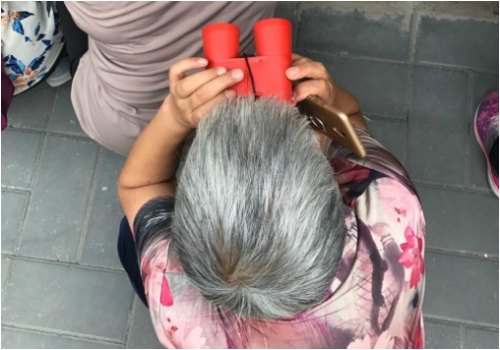“I will return the money when I am older,” a 9-year-old mobile games fan told Chinese reporters from Pear Video this week.
The third grader from Guiyang, Guizhou, secretly spent over 20,000 RMB (±3000$) of his father’s money on mobile games, buying weapons and armor for his virtual warriors. The boy could effortlessly click from the mobile game to QQ Wallet, one of the Paypal-like online payment platforms by Chinese tech giant Tencent.

The unexpected financial setback is a big blow to the family. The father makes less than 100 RMB (14.8$) per day. To earn back the money his son spent on online games will cost him seven months of work. The 20,000 RMB was the family’s savings, much needed for their everyday life and their son’s school books.
The young boy started spending the money when he played a popular online mobile fighting game. He wanted to purchase additional in-game features to keep up with his friends, who also play the same game.

Since the boy knew his father’s QQ Wallet code, he was able to purchase dozens of items through the app without his father knowing.
“This is booming business for Tencent, as it can easily rope in its users across multiple platforms; making the step from WeChat friend groups to mobile games to online payment as small as possible.”
This story is just one among many. At the same time the story of the boy from Guiyang made its rounds on Chinese social media, there was also the story of a 13-year-old from Xianyang who spent 5697 RMB (±850$) in one day on a Tencent mobile game through WeChat Pay. Or that of a junior high school student from Guangzhou spending a staggering 50,000 RMB (±7400$) within one week, buying armor for a game.
In the Xianyang case, the parents of the boy noticed dozens of text messages on their phone when they returned home from work on July 28. They were all confirmation messages from WeChat for mobile payments. The father from Guangzhou told a similar story to Sina News. As many children in China have summer break from school, parents are often at work while the children are at home, and have less overview of what their children are doing.
The game many of these children spent money on is called Crossfire (穿越火线), published by Tencent in China. The game is free to play, but earns its revenues from microtransactions. Players are willing to pay large amounts of money to get better weapons and win territory.
The game is currently among the top downloaded games in the Tencent app store. Its most expensive in-app purchase is almost 616 RMB (±91$); an amount that was spent many times by the 9-year-old boy from Guiyang.

China has the largest mobile gaming market in the world – and it is a booming business. As China’s leading tech company, Tencent is a dominant player in various fields. It runs messaging platforms QQ and WeChat, online payments solutions Tenpay, QQ Wallet, and WeChat Pay, and also owns a big chunk of China’s online gaming market.
The combination is a golden one for Tencent, as it can easily rope in its users across multiple platforms; making the step from WeChat friend groups to mobile games with in-app purchases to online payment as small as possible.
This is not necessarily a problem when it concerns adult players, but when it concerns kids as young as 9, the game is a trickier one.
“My little brother is crazy about mobile games, and I told him that I will beat him up if he uses our parent’s money to play. Our relative’s son used up 20,000 RMB on mobile games.”
Why do these children know their parents’ payments code? The father from Guangzhou told media reporters he trusted his child and shared his code so they can top up their mobile phone credit if necessary. The 13-year-old boy from Xianyang told Chinese media that he just knew his father’s payment code because he had seen it before. But once he started playing the game, he just kept on going to the next level and lost track of the amount of money he had actually spent.
The game currently has no age restrictions for its players. Recently, however, various media reported that Tencent was limiting the play time for some of its mobile games, restricting players under 12 to play more than an hour per day, to avoid children becoming addicted to mobile gaming.
One Weibo user said: “Lately, there are a lot of mobile games and online games that have many methods to lure users into spending money. Of course, this is one of the main ways for these games to earn money from players, but the people who are running and operating these businesses are not stupid – they know that many of their players are young kids. But still, this is how unscrupulous they are. Doesn’t your conscience bother you?”
Another commenter wrote: “My little brother is crazy about mobile games, and I told him that I will beat him up if he uses our parent’s money to play. We’ve never had a problem. Our relative’s son used up 20,000 RMB on mobile games.”
Many users also stress that parents need to keep their payment identification codes a secret to their children: “Why on earth would you ever tell little kids who cannot control their urges your payment code?”
Some netizens also say that children under the age of 12 should not be allowed to play mobile games at all.
By now, the fathers from Guiyang and Xiangyang have both contacted Tencent to see if they can get some of their money back. In both cases, it is yet unclear if they will succeed in being reimbursed for their children’s games.
By Manya Koetse
Follow @whatsonweibo
©2017 Whatsonweibo. All rights reserved. Do not reproduce our content without permission – you can contact us at info@whatsonweibo.com.
The post Playing Around with Tencent: Chinese Parents are Losing a Fortune on Mobile Games appeared first on What's on Weibo.




























































































